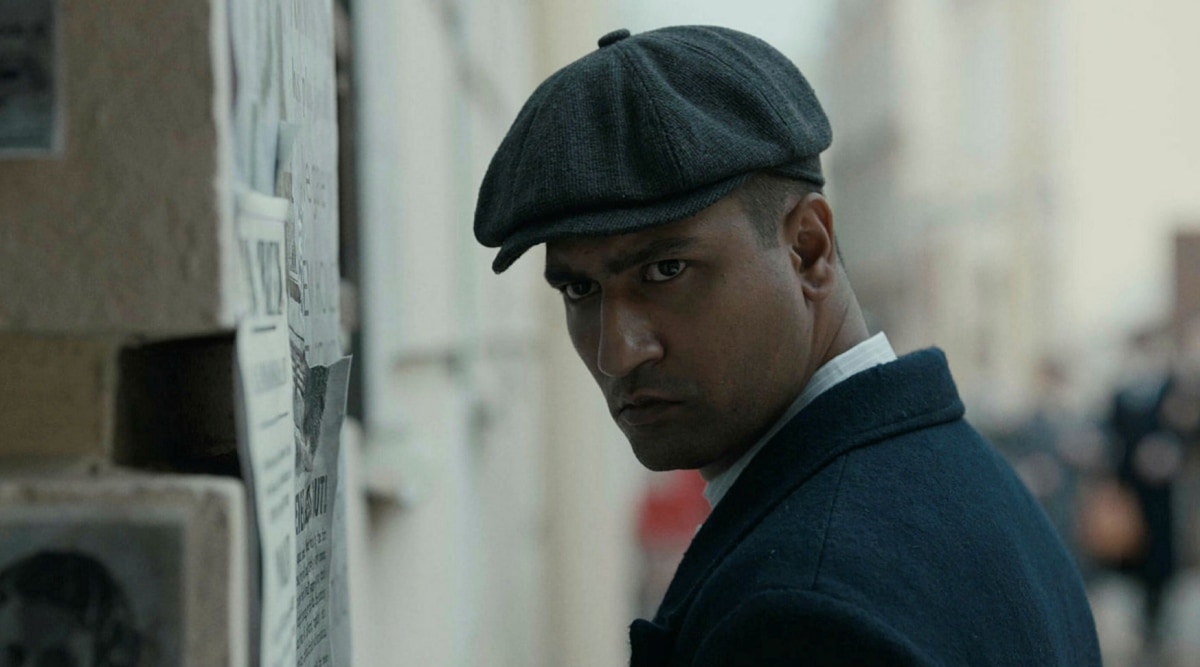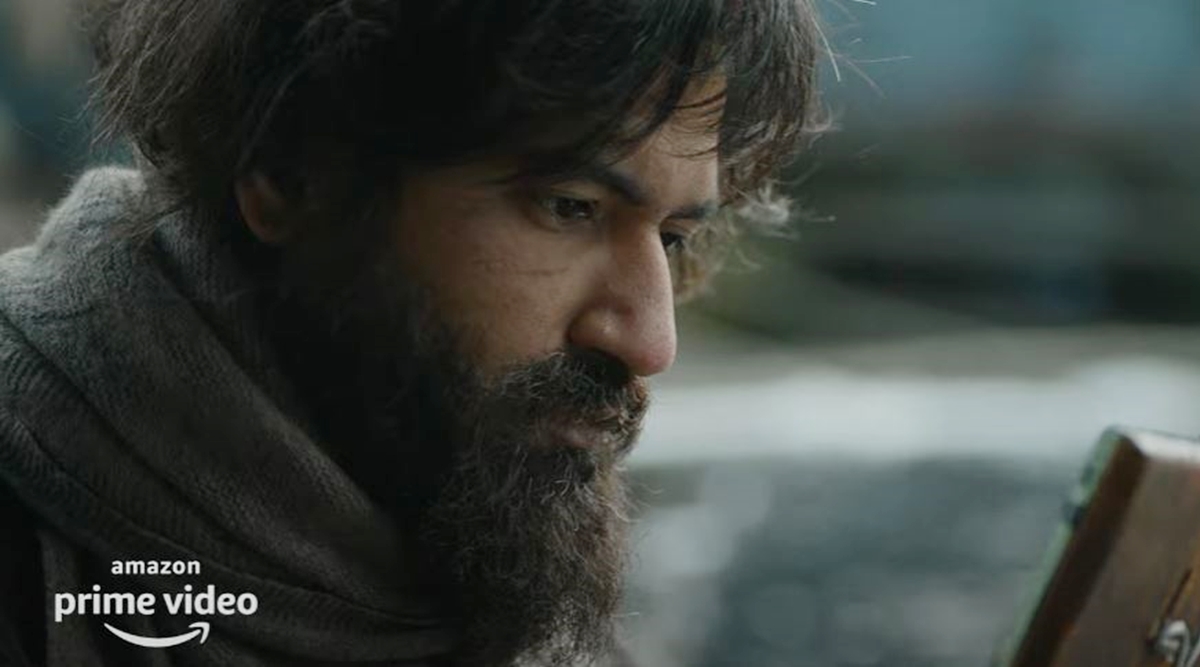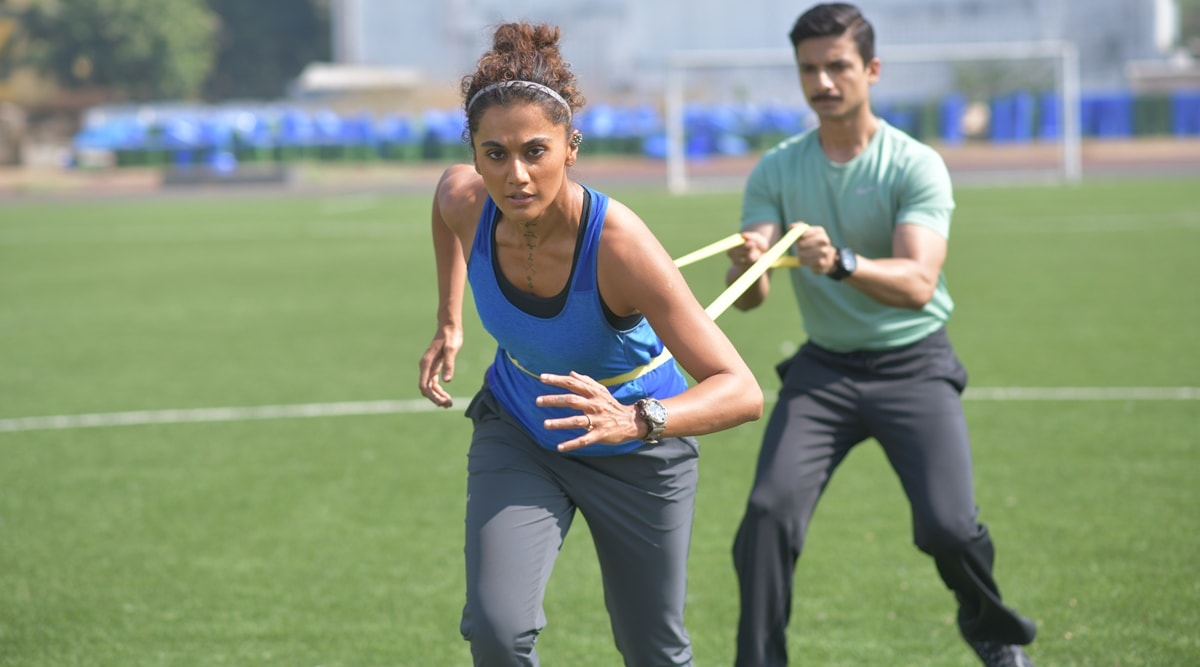 Played superbly by Vicky Kaushal, Udham is presented as an ordinary, affable young man traumatised and transformed by the nightmare of Jallianwala Bagh.
Played superbly by Vicky Kaushal, Udham is presented as an ordinary, affable young man traumatised and transformed by the nightmare of Jallianwala Bagh. In this column published every month, The Best, The Worst and The Most Unexpected across Indian film and television in the month gone by are singled out. Consider it a report card. In October, an Indian revolutionary was celebrated with a powerful film, a film about running featured very little running, and a young actor dazzled in a dark drama.
The Best
Sardar Udham (Amazon Prime)
One of the most striking aspects of Shoojit Sircar’s Sardar Udham is its casting. Not only does the director reappropriate Vicky Kaushal from the jingoistic bombast of Uri by casting him in the taciturn, internalised role of a revolutionary struggling with the nature of revolution, but he casts Amol Parashar as the legendary Bhagat Singh. Picking this actor best known for playing collegiate roles in TVF web-shows to play the icon emphasises the heartbreakingly young age of Bhagat Singh. The most valiant and lionised of freedom fighters, this film reminds, was just a boy.
As was his colleague. Played superbly by Kaushal, Udham is presented as an ordinary, affable young man traumatised and transformed by the nightmare of Jallianwala Bagh. The night before the massacre, he unsuspectingly shrugs off the idea of attending the protests in the Bagh, instead announcing his intent to sleep the whole day. When we first meet him, years after the incident — trudging across frozen Siberia or making naans for minimum wage in London — we get to know Udham as one to whom sleep never comes.
Restlessness, like revenge, simmers in its own heat. “You lamb, we lamb,” he haltingly but unhesitatingly tells a member of the Irish Republican Army, “butcher same.” Sircar’s film eviscerates the British for their inhuman crimes while its hero patiently and single-mindedly focusses on only one mission: killing the monster behind the nightmare. While it was Brigadier-General Reginald Dyer who opened fire on the innocents, the film pointedly holds Michael O’Dwyer, then Lieutenant Governor of Punjab, more responsible. Eager to quell rising agitations across the country, it was O’Dwyer who encouraged the General to ‘make an example’ of the peaceful protestors in the Jallianwala Bagh.
The blood on the ground may be spilled by foot-soldiers, but blame falls to the man who controls the state and endorses the violence. Butchers don’t always come bearing knives.
Udham Singh had assassinated O’Dwyer. The film explores his reasoning, and lets us watch him circle his prey for two decades. It is a tough, intense watch, a film that stretches across a long runtime to mirror Singh’s journey. We watch him age and travel, find his voice and find his faith. Avik Mukhopadhyay’s cinematography is superb, and the production feels every bit as authentic as British wartime dramas, setting a new benchmark for Indian period productions.
 Vicky Kaushal in Sardar Udham.
Vicky Kaushal in Sardar Udham. Sircar — with writers Shubhendu Bhattacharya and Ritesh Shah — shows us Singh’s struggle up close, and Vickey Kaushal is remarkably thoughtful in the part, creating a freedom fighter who not only exults and attacks but also ponders and questions. Kaushal’s Udham is a man who knows the weight of every word he says. Sardar Udham makes us realise why the revolutionary famously chose to be identified as “Ram Mohammad Singh Azad.” I wonder if that is an unconsecrated name or an over-consecrated one, or whether there is a difference.
Throughout the film, Sircar keeps giving us brutal glimpses of Udham being tortured in captivity, and these spurts of violence — each successive scene feeling more inhuman simply because we have gotten to know the man a bit more — condition the audience for what is to come. This does not mean we are prepared for it.
The film culminates in Jallianwala Bagh. Sircar and his impressive production team hit the audience full-bore between the eyes with the massacre. This is a dreadful (and masterfully extended) sequence, one made to feel unending. It wants to make the viewer squirm with claustrophobia and repulsion. The carnage feels painfully real and absurdly unreal. The bullets keep coming. A hand continues to grip a gate while an arm is shot off. The bodies keep falling. A girl who can’t speak bears witness to the unspeakable.
We cannot look away. We must not look away. At a time when we are defacing our own history, this film is a monument.
The Worst
Taapsee Pannu’s running in Rashmi Rocket (Zee5)
Taapsee Pannu, a fine actress who seems content repeating herself — she is plucky-defiant-triumphant in every film — plays a track and field athlete in Akarsh Khurana’s Rashmi Rocket where, for some baffling reason, we barely get to see her run. The actress has worked on her physique but her running always looks artificial, and credibility isn’t boosted by the film slowing down and speeding up the few sequences that show off actual racing.
 Rashmi Rocket is streaming on ZEE5.
Rashmi Rocket is streaming on ZEE5. The Most Unexpected
Paramvir Cheema in Tabbar (SonyLiv)
The ensemble cast in Tabbar, a murky Punjabi drama, features actors so talented and well-chosen it’s hard to choose whom to applaud first. Yet while the show features powerhouse performers like Pavan Malhotra, Supriya Pathak and Ranvir Shorey in smashing form, a march is stolen by Paramvir Cheema playing earnest policeman Lucky Singh, a friendly and clean-cut young man eager to prove his investigative skills and tackle more than the scraps assigned his way. It is a breakout performance, and — as the de facto hero of the series — Cheema is Tabbar’s most unforgettable and unexpected character. Even if he falls short of his name.
Raja Sen is a critic, author and screenwriter, currently working on a film he isn’t allowed to talk about.
- The Indian Express website has been rated GREEN for its credibility and trustworthiness by Newsguard, a global service that rates news sources for their journalistic standards.

